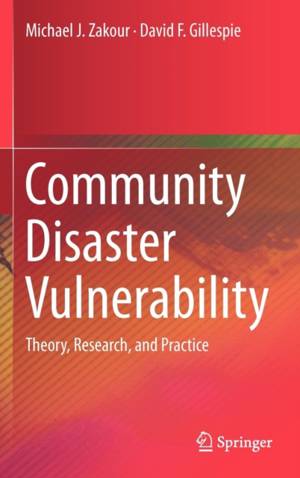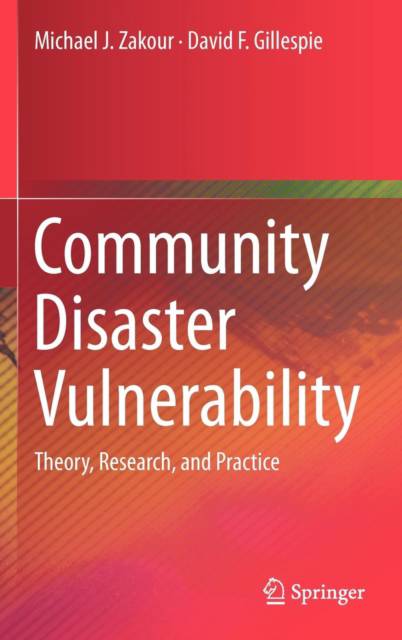
Bedankt voor het vertrouwen het afgelopen jaar! Om jou te bedanken bieden we GRATIS verzending (in België) aan op alles gedurende de hele maand januari.
- Afhalen na 1 uur in een winkel met voorraad
- In januari gratis thuislevering in België
- Ruim aanbod met 7 miljoen producten
Bedankt voor het vertrouwen het afgelopen jaar! Om jou te bedanken bieden we GRATIS verzending (in België) aan op alles gedurende de hele maand januari.
- Afhalen na 1 uur in een winkel met voorraad
- In januari gratis thuislevering in België
- Ruim aanbod met 7 miljoen producten
Zoeken
Community Disaster Vulnerability
Theory, Research, and Practice
Michael J Zakour, David F Gillespie
Hardcover | Engels
€ 167,95
+ 335 punten
Uitvoering
Omschrijving
Disaster vulnerability is rapidly increasing on a global scale, particularly for those populations which are the historical clients of the social work profession. These populations include the very young and very old, the poor, ethnic and racial minorities, and those with physical or mental disabilities. Social workers are increasingly providing services in disasters during response and recovery periods, and are using community interventions to reduce disaster vulnerability. There is a need for a cogent theory of vulnerability and research that addresses improved community disaster practice and community resilience. Community Disaster Vulnerability and Resilience provides a unifying theoretical framework backed by research which can be translated into knowledge for effective practice in disasters.
Specificaties
Betrokkenen
- Auteur(s):
- Uitgeverij:
Inhoud
- Aantal bladzijden:
- 180
- Taal:
- Engels
Eigenschappen
- Productcode (EAN):
- 9781461457367
- Verschijningsdatum:
- 13/11/2012
- Uitvoering:
- Hardcover
- Formaat:
- Genaaid
- Afmetingen:
- 156 mm x 234 mm
- Gewicht:
- 435 g

Alleen bij Standaard Boekhandel
+ 335 punten op je klantenkaart van Standaard Boekhandel
Beoordelingen
We publiceren alleen reviews die voldoen aan de voorwaarden voor reviews. Bekijk onze voorwaarden voor reviews.









